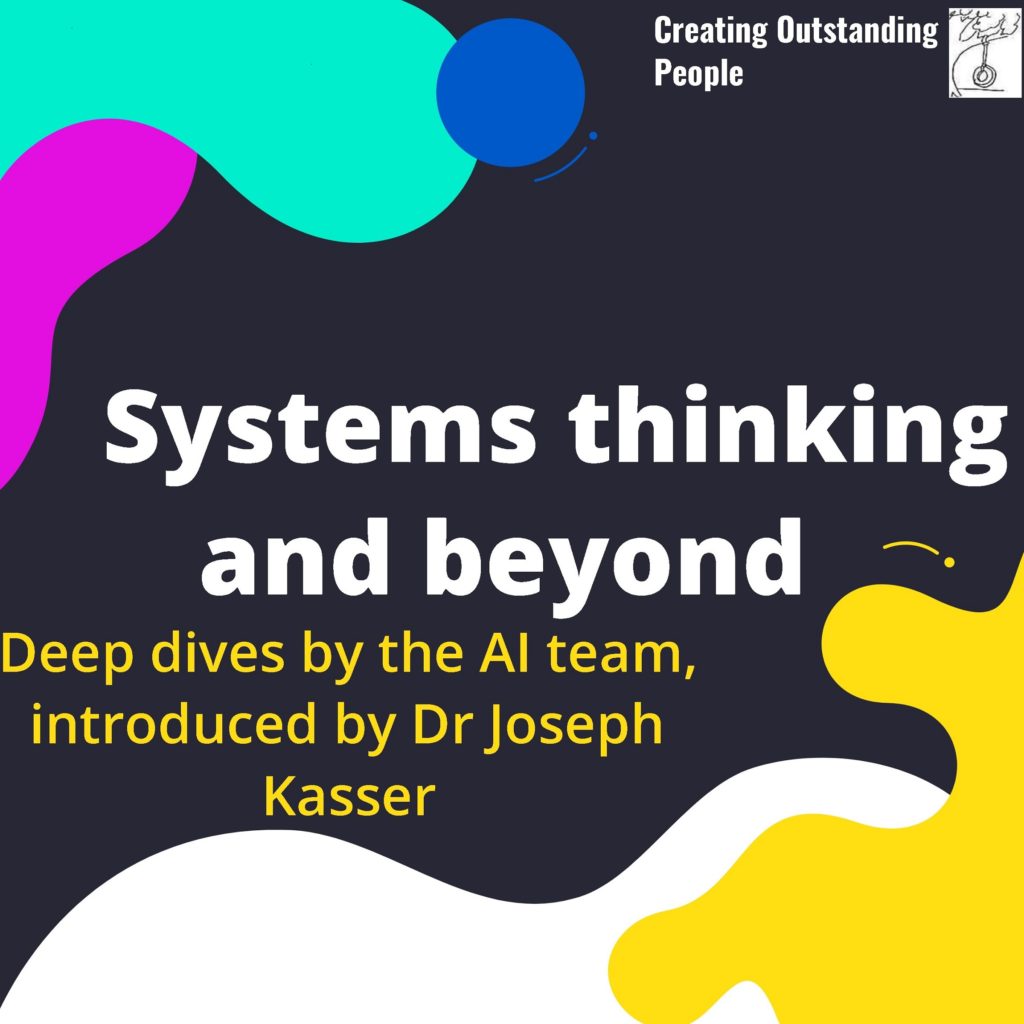-
I'm normally on line Thursdays at 9.30 pm London local time and 7 pm New York local time in the OASIS café at Zoom Meeting (office hours for drop in chats)
-
Meeting ID: 873 4055 1993
Passcode: 557756 -

Podcasts on systems engineering and systems thinking -
NEW WEBINAR Overcoming the top three obstacles faced by young project managers in their first few years
From obstacles to triumphs
From obstacles to triumphs: A project manager’s early career roadmap
-
-
If you are even thinking about enrolling in training, you need to watch my YouTube video Why selecting the wrong training course could cost you $1000s
Blog Archives
How collaboration via the World Wide Web can provide a global perspective and truly provide the student with a world-class education
Out AI team take a deep dive into a 2000 conference paper which applied systems thinking to propose solutions to the shortage of qualified instructors in graduate-level Information Technology programs. The core idea is collaborative teaming among universities, using distance education technology to leverage global expertise and overcome geographical limitations. This approach, involving various teaching formats, aims to improve course quality, update curriculum, and address intellectual property concerns. Alternative models are explored, such as a customer-contractor relationship between … Continue reading
Comments Off on How collaboration via the World Wide Web can provide a global perspective and truly provide the student with a world-class education
Improving e-learning through systems thinking: anecdotes and lessons learned
The AI team take a deep dive into a presentation made to the BCS in 2023 which details Dr. Joseph Kasser’s experiences improving e-learning, spanning from 1997 to 2022. He describes overcoming challenges in early online learning using limited technology, developing effective asynchronous and synchronous class formats, and creating innovative capstone projects. His approach involved systems engineering principles, focusing on stakeholder needs and iterative development. He highlights the evolution of his teaching methods, including a … Continue reading
Comments Off on Improving e-learning through systems thinking: anecdotes and lessons learned
Introducing the balanced classroom
The AI team take a deep dive into a research paper which explores the design and implementation of a “balanced classroom” approach to systems engineering education. The author, drawing on years of teaching experience and systems engineering principles, argues that traditional lecture-based methods are ineffective and proposes a system that integrates various pedagogical techniques, including flipped classrooms and authentic learning activities. The research investigates the effectiveness of different teaching methods and delivery modes (synchronous/asynchronous), analyzing … Continue reading
Comments Off on Introducing the balanced classroom
Is your AI quality good enough to save humanity?
The AI team take a deep dive into Tom Gilb’s presentation to the BCS in July 2024 on AI quality which advocates for a multidimensional approach to evaluating AI systems, moving beyond vague descriptions. He argues that current AI models are defective due to inherent instability and a lack of transparency. Gilb proposes using quantifiable metrics for qualities like transparency and security, incorporating a stakeholder model for a more comprehensive understanding. The presentation emphasizes the need for measurable standards to assess AI systems effectively, contrasting Large … Continue reading
Comments Off on Is your AI quality good enough to save humanity?
Let’s just stop writing requirements
Our AI team takes a deep dive into a 2023 webinar presentation by Professor Joseph Kasser who argues that the traditional approach to writing system requirements is fundamentally flawed and proposes an alternative: Object-Oriented Systems Engineering (OOSE). OOSE replaces text-based requirements with object properties managed within an Integrated Information Environment (IIE), aiming to improve communication, reduce errors, and increase project success rates. The presentation details OOSE’s four-stage system development process and highlights its advantages over … Continue reading
Comments Off on Let’s just stop writing requirements
